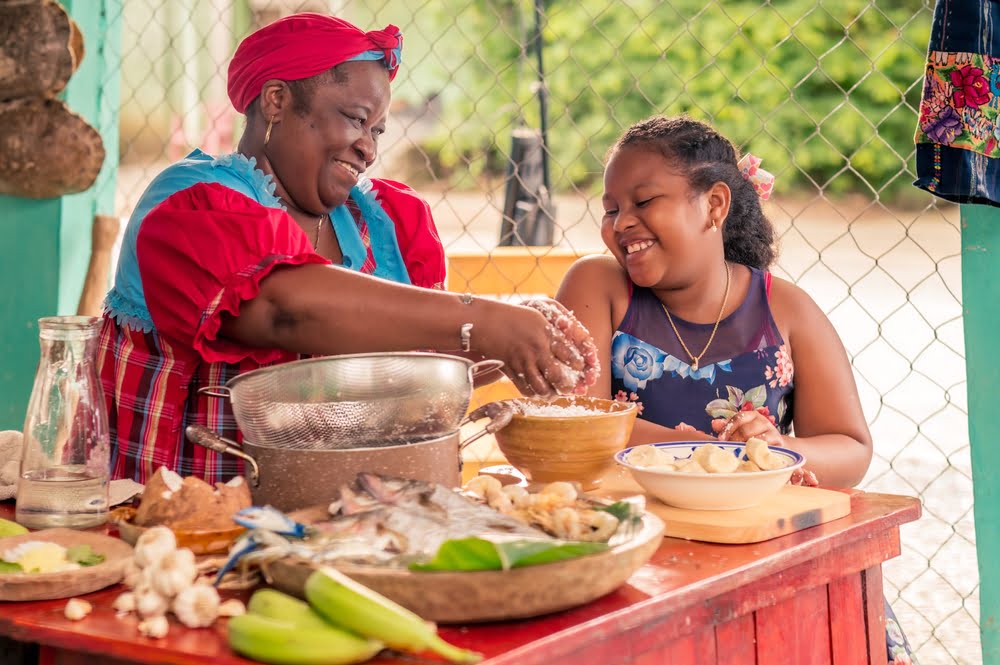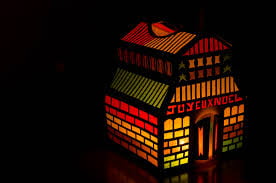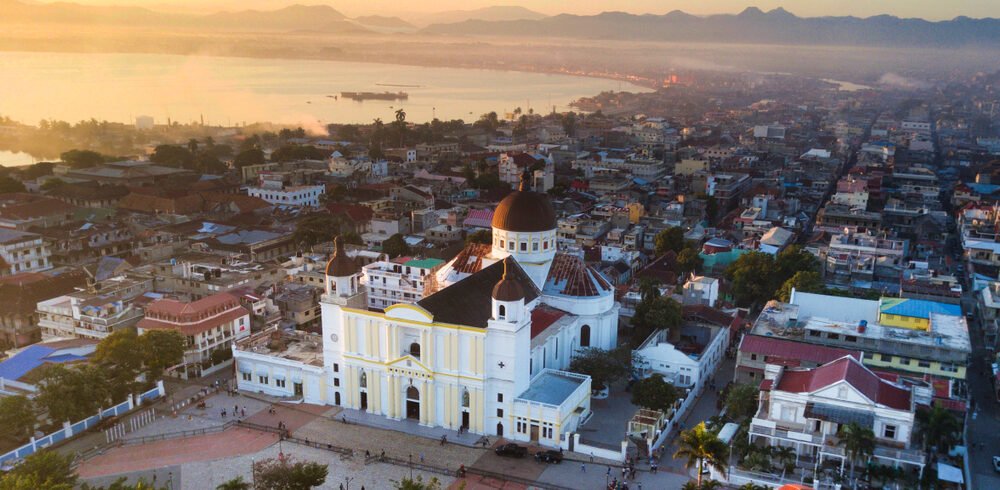Christmas Eve
Christmas in Haiti is such a lively time, the lights often stay on until the early hours of Christmas Day. Children receive special permission from their parents to go out in the middle of the night to take part in Christmas Eve festivities. Older children look after the young ones, watching performances in public areas, watching carol singers, and waving sparklers in the air. Some children also leave shoes with straw in them under a tree, where they believe Santa, or Tonton Nwel, will exchange the straw for gifts.
Many Haitian people are spiritual, and will attend a mass on Christmas Eve evening, or a midnight mass. Afterward, families gather for a party and a meal, also known as reveillon. Reveillon is a French term that roughly means ‘to wake up.’ This large meal can literally last the entire night.
Christmas Day
After an entire night of celebration, food, shows, mass, and more, most people spend Christmas day sleeping off the night. Christmas tends to be a relaxing time for families to gather, eat more food, and play with new gifts. Those who missed service late night services on Christmas Eve will attend mass on Christmas morning instead. Christmas in Haiti is all about spending time with family, friends, and loved ones. Once it gets dark, children often return to their sparklers, or pi detwal, to light up the Christmas evening skies.
Common Christmas Foods

You can always expect large meals during Christmas time. Most of this food will be found during reveillon, but most families prepare this food in abundance to enjoy during Christmas as well. Common foods include rice with congo peas or djon djon (mushrooms), fried accra, tassot cabrit (fried goat), chicken, pumpkin soup, fried banana, and griot. Griot is a pork dish marinated in orange juice for four hours and seasoned with various herbs. It is served with onions, carrots, peppers, and cabbage. For sweets, Haitians enjoy orange cakes, pineapple upside-down cakes, and will often be seen drinking kremas, an original Haitian creamy coconut drink with rum similar to eggnog.
Typical Christmas Traditions
Although Haiti is a small island nation, its diverse and colorful culture creates many interesting ways to celebrate during Christmas Time. Depending on where you are, you may wish someone Jwaye Nowel in Haitian Creole or Joyeux Noel in French. Most families begin looking for Christmas trees and decor in early December so that by Christmas day, entire streets are brightly decorated with Christmas lights and decorations. Families fill this time with sharing stories of Santa Claus and the birth of baby Jesus to their children. Christmas is a busy time of the year, where people line the streets of main city hubs like Port-Au-Prince to purchase gifts from the many vendors.
Fanal
One of the most well known Haitian holiday traditions includes creating fanals, a centuries-old tradition. A fanal is a lantern-like project both children and adults alike spend time crafting during Christmastime. The simplistic beauty of a fanal lies in the fact that you can make it from whatever materials you can find into whatever shape you like. Most people, however, create homelike structures, including schools and churches with pieces of paper boxes, and light them up using candles. You will likely see several fanals lined up on the porches of each home during this time. Fanals were once used to light the way for churchgoers heading to service on Christmas day.

The Gift of Clean Water
During this time of giving, we want the Haitian people and all others around the world to be safe and healthy this holiday season and all others to come. At Healing Waters International, we work with the people of Haiti to provide clean water solutions to even the most rural communities. If you would like to help us with our goal, please consider a donation or contacting us to find out more.
